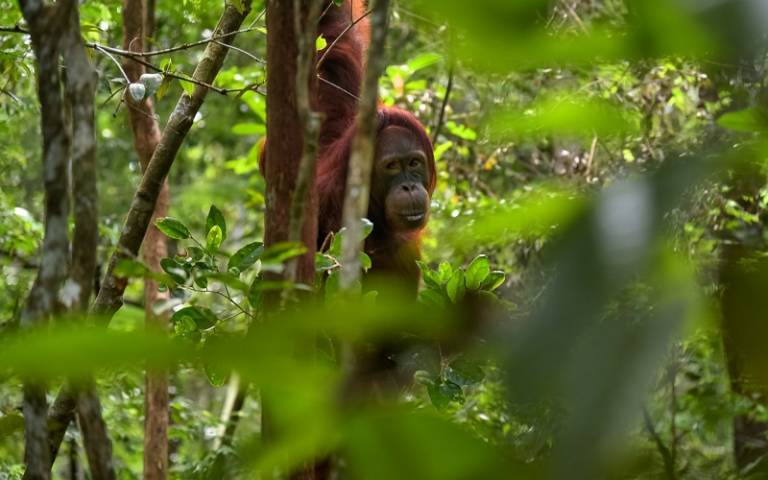Student Essay Competition: Joint Approaches to the Climate and Biodiversity Crises
11 March 2021
We want to hear your thoughts on how we can tackle the climate and biodiversity crises. Submit your short essay (up to 1000 words) by 28 May 2021 for a chance to get published and win up to £100. The competition is open to postgraduate students across UCL.

There is growing recognition that accelerating climate change and mass biodiversity loss are mutually reinforcing challenges. Global warming is already putting massive pressure on vulnerable ecosystems, including coral reefs and the polar regions. Unless decisive climate action is taken, we could experience sudden and dramatic disruptions to key ecosystems as early as 2030.
In turn, the decline of biodiversity is making it more difficult to address the climate crisis. This is because biodiverse ecosystems, such as forests, mangroves or peatlands, act as significant natural carbon stores and also provide protection from extreme weather events and other adverse effects of global warming.
The implications for humans are immense. The combined challenge of climate change and ecosystem breakdown poses a multitude of interrelated risks, from food insecurity to the spread of infectious diseases. We are on a “collision course with the laws of ecology;” eroding the natural life support systems upon which human civilisation ultimately depends.
But there is also positive news. Because climate change and biodiversity loss are closely linked, we can address them together – in a way that simultaneously offers benefits to human communities. There is growing interest in policy interventions that work with nature to make societies more environmentally and socially sustainable. A move towards such integrated solutions could also help facilitate the achievement of the United Nations Sustainable Development Goals (SDGs).
We invite postgraduate students across UCL to share their thoughts on the challenges and opportunities ahead. Students from any discipline can participate. Essays should not exceed 1000 words. They should be aimed at (and accessible to) a general university audience.
The following list provides examples of the types of questions students might want to select for discussion. Authors are free to pose their own questions of a similar nature.
- How can we best make sense of the interrelated challenges presented by climate change and biodiversity loss?
- Where do we see compelling examples of community-based solutions that work with nature rather than against it?
- What are the implications of accelerating global warming and biodiversity loss for the prospect of achieving the UN SDGs?
- How can we effectively catalyse action to bring political reality into alignment with biophysical reality?
- What kind of governance frameworks (local, national, regional and/or global) are needed to address climate change and biodiversity loss in an integrated manner?
- How can societies become more resilient to the risks posed by a warmer, more volatile planet?
- How can governments incentivise an ecologically and socially sustainable post-COVID-19 recovery?
The best three essays will be published on the website of the UCL Global Governance Institute. The author of the winning essay will receive £100. There will be prizes of £50 each for the two runner-up entries. The winning essays will also be circulated to a network of UCL colleagues and external experts working on the climate-biodiversity interface.
To participate, submit your essay as an attachment (in Word or PDF) to global.governance@ucl.ac.uk by 28 May 2021. If you have any questions about the competition, please contact Julia Kreienkamp at j.kreienkamp@ucl.ac.uk.
This essay competition is facilitated by a grant from UCL Grand Challenges and the UCL Global Engagement Office. It forms part of a wider project on “A Shared Agenda for the United Nations Sustainable Development Goals on Biodiversity and Climate Change,” hosted by the UCL Global Governance Institute.

 Close
Close


